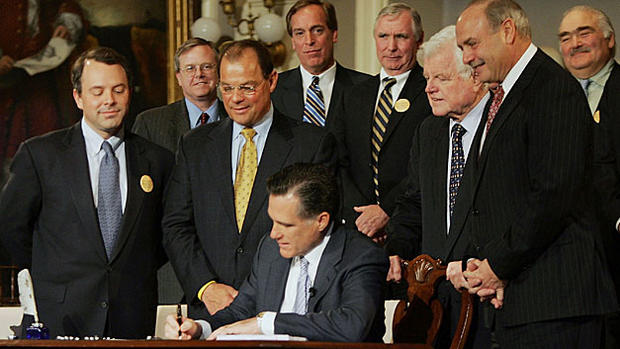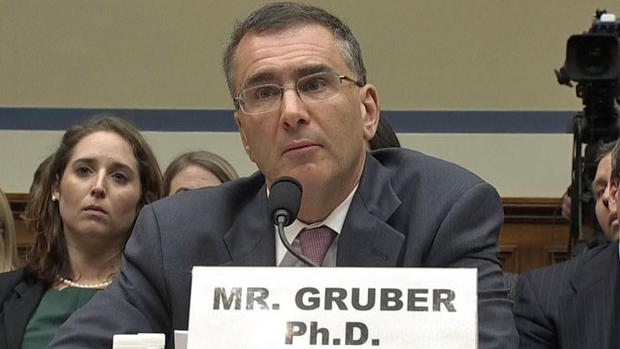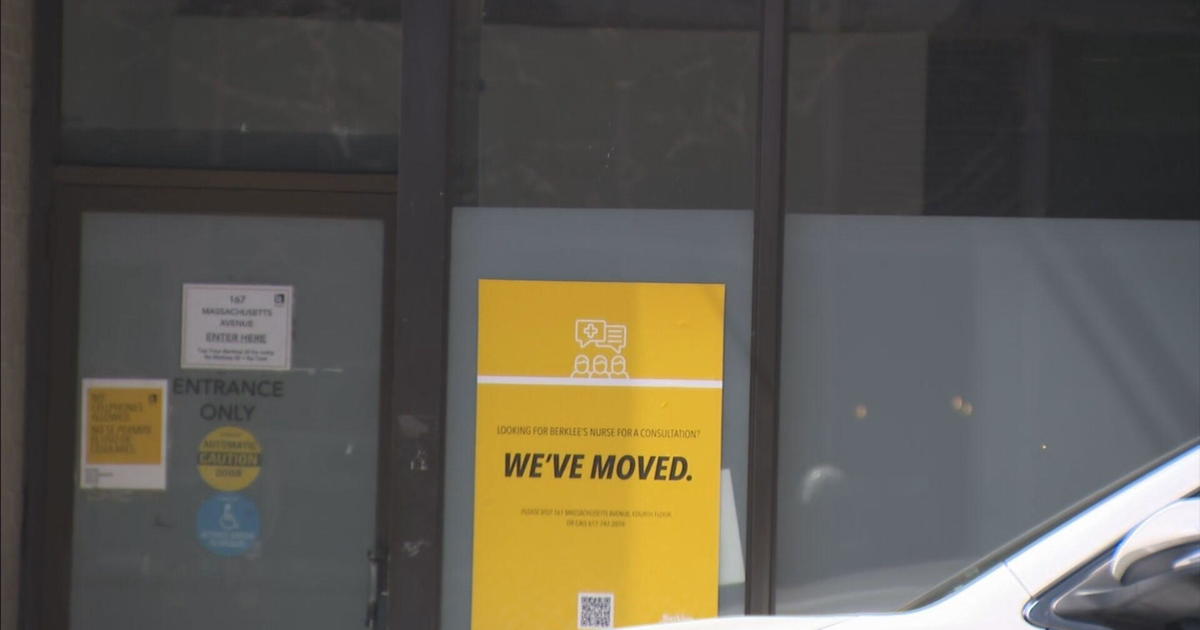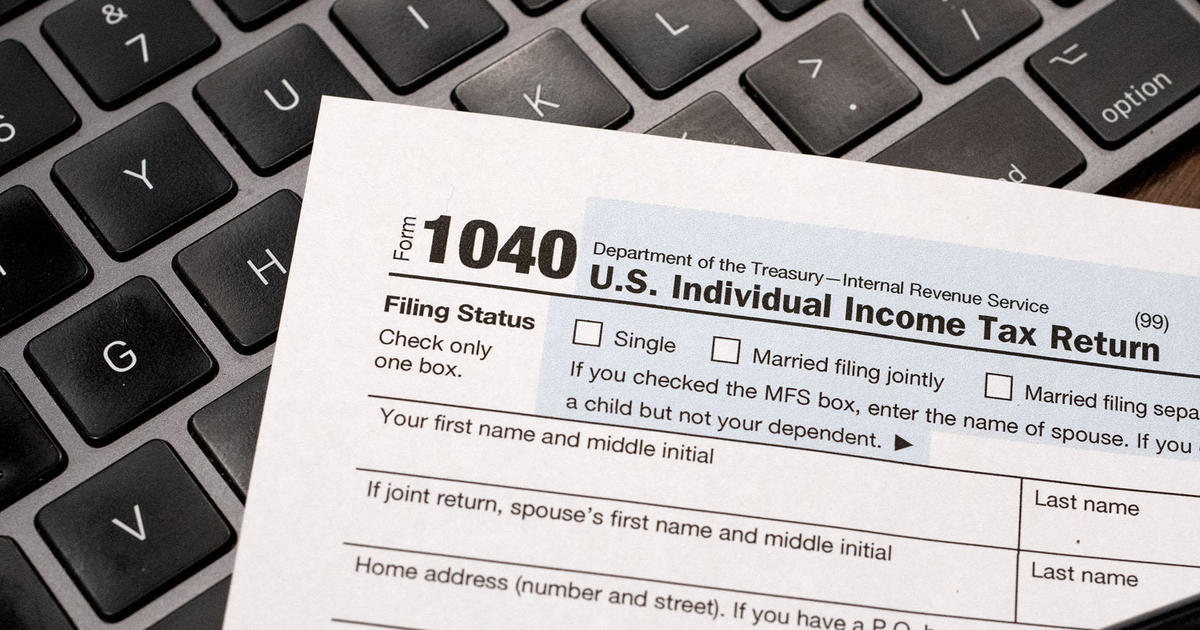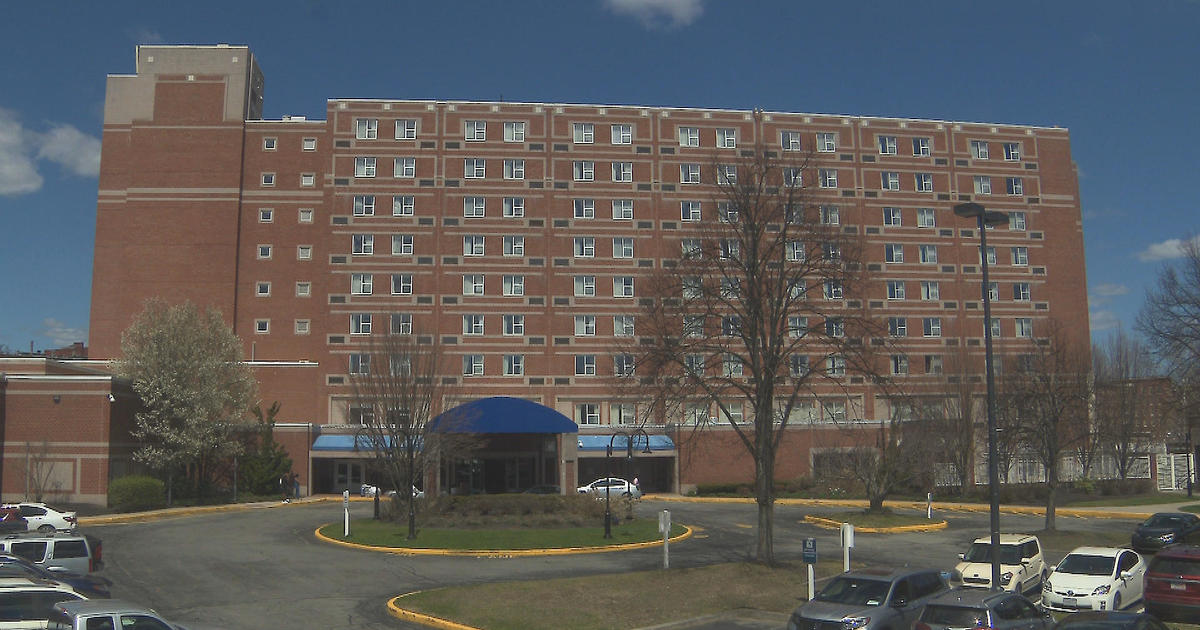Obamacare Architect: Headlines On Premium Increases Are Misleading
BOSTON (CBS/AP) - Earlier this week, the federal government projected sharp increases in premiums for Obamacare. The Department of Health and Human Services also noted that many Americans will have just one choice for a health insurance company.
Before federal subsidies, premiums for a midlevel benchmark plan will increase an average of 25 percent across the 39 states served by the federally run online market. Some states will see much bigger jumps, others less.
WBZ NewsRadio 1030's Joe Mathieu talked with Professor Jon Gruber, an economist at the Massachusetts Institute of Technology, who is known as the chief architect of Obamacare and its predecessor, Romneycare.
Joe: Is it being reported fairly – the increase in premiums?
"It's not. I think the most important part that's being missed is the fact that these are not the premiums the vast majority of Americans face. So most Americans get insurance through their employer. What's not being reported is, since Obamacare passed, employer-sponsored premiums have grown at their slowest rate in history. That's not getting any headlines.
"There's a small minority of people who buy insurance through the exchange. Most of them also aren't affected by these premium increases because they get health insurance subsidies. So it's really only a very small share of the public that's affected by these premium increases, which I don't think you'd realize if you read the headlines."
Joe: So who is paying more?
"Basically, it's people who buy insurance on their own, not through their employer, who aren't low-income. So it's somewhere between, it's on the order of sort of 6-to-7 million people. It's a sizable group of people, but it's also a small minority of Americans buying health insurance."
Joe: The government says some of these premium increases will be subsidized, but that sounds like a drop in the bucket? What is it?
"That's actually not right. In fact, the majority of people buying insurance on this market are subsidized. If you look through buying the exchanges, 85-percent of people buying the exchanges are getting these subsidies. So it's not a drop in the bucket, it's actually a very important offset."
"The other thing to mention, Joe, is to recognize the context of where we've come from. This is a law which was put in place with a lot of uncertainty about the exchanges. Insurers didn't know what would happen. This was a brand new frontier. Premiums today are exactly, literally almost to the dollar, where we projected they'd be. The difference was insurers came in way lower than where we'd thought they would come in and now they're making up for it with big increases.
"Once again, you didn't hear about the fact that premiums were super low in 2014 and 2015. You just hear about they've been increased recently. In the end, premiums are about where we expected they would be, which is still too high and it's a long-run problem to deal with, but it's not a crisis and the law is not in big trouble."
Joe: Even with the increases that have been announced, three-quarters of exchange customers will be able to find a plan for $75 a month or less. Is that a fact?
"That's right. That is absolutely a fact. Remember that the majority of exchange customers are subsidized and also it's important for your listeners who are buying the exchange, to remember the importance of shopping. When you see the big premium increases, 25-to-50 percent, those are for people who stay in a certain expensive plan. If you shop around, those increases can be much, much smaller and even be decreases."
Joe: What does it mean when some exchanges are left with just one provider?
"About 20-percent of people live in counties where there's only one choice. That by itself is not a problem. The problem is, does that lead to sort of large premium increases, what we call 'monopoly power,' because there's only one provider. Once again the answer here is to have a little faith in the market. If that's true and that provider tries to crank up rates too much, other providers will enter. And while we hear a lot of stories of folks like Aetna leaving, the stories aren't covering the fact that there are other insurers who are thriving in this market. If there's only one insurer and they try to raise prices too much, other insurers will come in and take advantage of that."
Joe: How did we the media get to being, as you say, so wrong about this story?
"I think you can ask the general question of how we got to being so wrong about the law. Here's, to me, the scariest fact about public opinion of Obamacare. The one thing that everyone agrees on is, statistically, is that Obamacare has led to a huge reduction in the number of uninsured. About 20 million Americans have gained health insurance coverage. Yet, if you ask the public, has Obamacare reduced the degree of (uninsured) as many people say it's gone down – which is the truth - as say it's gone up – which is totally wrong."
"You can ask a general question – why are people so uniformed about the successes and how Obamacare works and really I think it's because we've seen a relentless, really quite effective honestly, campaign of misinformation opposition to this law."
"Traditionally in the U.S., the way it works is you fight over a law and when it passes you shake hands and move on to the next fight. That hasn't happened with Obamacare. The fight has not slowed down since the law passed and the result has been sort of just relentless misinformation about this law and this is just one example."
Joe: At the time it passed, even President Obama said, if only it weren't so complicated. Because this law is so complicated, you hear a lot of misinformation and you miss any good news that's in there – is that fair?
"I think it's a great point Joe and let's talk about why it's complicated. It's complicated because the goal of the law was not to rip up the system and start over. The goal was to say, let's let people keep what they have if they like it and let's add fixes to the system for them if the system isn't working. That's hard to do in a non-complicated fashion, and really, in some sense, it was pioneered here in Massachusetts.
"It was Mitt Romney's insight that we can fix the holes in the system without messing up where the system works. And that's what we did in Massachusetts, what Obamacare does, but there's no way to do that without it being complicated."
"So at the end of the day, the choice was between simple and politically unrealistic or complicated and something that could actually get passed, so they went with the latter."
Joe: Will we eventually have universal health care, a public option, or is this what we have for good?
"I think this is what we have for good. I mean, let's be clear, every time we've tried to do health care reform in the last 100 years, we've tried it about every 17 years on average, we've always moved to the right, not to the left. It's only got more and more conservative. Indeed, Obamacare is based on a Republican plan from the Conservative Heritage Foundation, which Mitt Romney, a Republican governor pioneered in Massachusetts, and which President Obama , to his credit, turned into a bi-partisan approach at the national level. So I don't see how we're suddenly going to move now to the left. We've only moved to the right. I think we're going to take the system we have, which is basically a largely market-based system and figure out some tweaks to make it work. But I don't see a big move to the left at this point."
Joe: There's been a push for repeal and replace. What if they pulled the plug on the whole thing? What would happen?
"Let's be clear. First they're not going to pull the plug and here's why we know they're not because the only legitimate complaint they've ever made about this law is that people didn't get to keep the health insurance that they had. Well, if you get rid of this law, you're taking health insurance away from 20 million people, that's just not going to happen. There's no way they're going to do that. The other thing is there is no 'replace.' Remember, as I said, this was a Republican plan that President Obama adopted because he knew it would work. There's no replacement because this is the Republican alternative. There's a liberal replacement, which would be single payer, but that's not happening politically. There's no Republican replacement because this is a Republican law. So at the end of the day, they can say 'repeal and replace' but the reason Trump isn't saying at all what 'replace' is is because basically they have no 'replace' and there is no 'replace.' There is literally no alternative to this law, which would, in a more market-oriented way, provide the kind of coverage this law does."
Joe: A lot of this has to do with semantics. If this was called "Medicare For All," would it pass?
"It would not pass and the reason is would not is because you would have had massive opposition from the insurance industry and from other organized elements in medical care who don't like Medicare. The insurance industry doesn't like Medicare because they can't make any money off of it. Doctors don't like Medicare because it pays them less than private insurance pays. So that comes back to your earlier point Joe about simple vs. complicated. That would have been such a simple slogan and such an easy thing to explain, it never even would have gotten to the floor of the Senate."
Joe: When Hillary Clinton says no public option, we just need to tweak this and make it better, what is she talking about?
"Hillary has supported the public option. I don't necessarily think it's politically in the cards, but I shouldn't conjecture on politics. So she has supported the public option. Basically, what we need to make this law work is a couple of fixes that are feasible but unfortunately require congressional cooperation. One is, we need to do what we did in Massachusetts, which is have a more serious individual mandate, have a more serious penalty for individuals who are free-riding and not signing up for this law. The second is we need to protect individuals more from out-of-pocket costs, particularly sort of middle-class individuals who are still facing very high costs out-of-pocket, even if the buy plans on these exchanges and we put in some more cost-sharing protections, but that will cost money. So there are fixes, which are very feasible, which are not major legislative lifts, but will require a cooperative Congress and I just don't know if that's going to exist."
Joe: What's the penalty now for not having health insurance?
"Right now it's the larger of $700 or 2.5% of your income. So if you're poor, $700 is a lot of money. If you're rich 2.5% of your income is a lot of money, but for a middle-class person it's not such a large penalty."
Joe: What do you think the penalty should be?
"I think the 2.5% of income is fine and I think it should be twice as large, about $1,500, which would be pretty close to what we have here in Massachusetts."
Joe: Has your life calmed down now since the law passed, or are you still in the political line of fire?
"I still get a lot of hate mail. The death threats have calmed down, which is nice. I think it's unfortunate that this has become such a political football. This is a law which has made people's lives better. There are millions of Americans today who are sleeping more securely and are healthier because this law passed."
WBZ NewsRadio 1030 Joe Mathieu reports
(TM and © Copyright 2016 CBS Radio Inc. and its relevant subsidiaries. CBS RADIO and EYE Logo TM and Copyright 2016 CBS Broadcasting Inc. Used under license. All Rights Reserved. This material may not be published, broadcast, rewritten, or redistributed. The Associated Press contributed to this report.)
